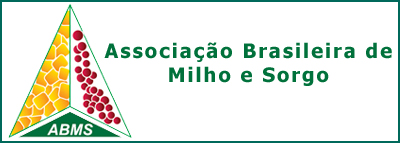WHOLE GRAIN OF DIFFERENT CORN HYBRIDS IN THE FINISHING DIET OF LAMBS
DOI:
https://doi.org/10.18512/1980-6477/rbms.v18n2p290-298Palavras-chave:
ingestive behavior, performance, digestibility, sheep, Zea maysResumo
The objective of this study was to compare whole grains of different corn hybrids in the finishing diet of lambs in terms of apparent digestibility, ingestive behavior and feedlot performance. Twenty-four crossbred lambs housed in individual pens were used. The animals were fed 7.35% hay and 92.65% concentrate (dry matter basis) containing 23.05% of a protein supplement plus 69.6% whole corn grains of the hybrids P3862, P4285 or Status for 72 days and were then slaughtered. The final body weight (40.82 kg) or daily weight gain (251 g) did not differ between lambs fed the different hybrids. Daily dry matter intake, expressed as percentage of live weight, was lower in the group fed the Status hybrid and intermediate in the group fed the P3862 hybrid. The Status hybrid resulted in lower digestibility of dietary crude protein, dry matter, and organic matter. There was no difference in hot carcass weight (19.8 kg), hot carcass yield (48.6%) or ingestive behavior between animals fed the different hybrids. Whole grains of the corn hybrids P3862 and P4285 are more indicated for fattening lambs fed with high-concentrate diets.
Downloads
Publicado
Como Citar
Edição
Seção
Licença
Autores que publicam nesta revista concordam com os seguintes termos:- Autores mantém os direitos autorais e concedem à revista o direito de primeira publicação, com o trabalho simultaneamente licenciado sob a Creative Commons Attribution License que permitindo o compartilhamento do trabalho com reconhecimento da autoria do trabalho e publicação inicial nesta revista.
- Autores têm autorização para assumir contratos adicionais separadamente, para distribuição não-exclusiva da versão do trabalho publicada nesta revista (ex.: publicar em repositório institucional ou como capítulo de livro), com reconhecimento de autoria e publicação inicial nesta revista.
- Autores têm permissão e são estimulados a publicar e distribuir seu trabalho online (ex.: em repositórios institucionais ou na sua página pessoal) a qualquer ponto antes ou durante o processo editorial, já que isso pode gerar alterações produtivas, bem como aumentar o impacto e a citação do trabalho publicado



